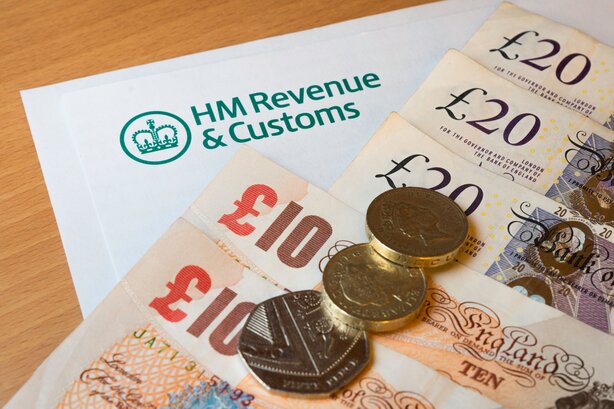What is a Double Taxation Agreement?

A Double Taxation Agreement (DTA) is a treaty between two or more countries designed to avoid or mitigate the effects of double taxation, where an individual or entity would otherwise be taxed on the same income by both jurisdictions. Such treaties spell out the tax obligations of residents in one country who earn income from another. Double taxation arises for individuals who are residents in one country but derive income from another, such as expats or international business operators.
Double Taxation Agreements ensure there is clarity on tax liabilities, reducing the possibility of tax evasion and avoidance. This enables free movement of trade and investment by allocating taxing rights between the participating countries. Most DTAs are based on OECD models and contain articles on various types of income, including dividends, interest, royalties, and other relevant income streams. Understanding how DTAs work can greatly benefit those engaged in cross-border economic activities.
Benefits of Double Taxation Agreements
DTAs play a crucial role in promoting international trade by providing clarity and certainty to taxpayers. They help avoid the hassle and financial burden of paying taxes twice on the same income in different jurisdictions. Additionally, DTAs often include provisions for dispute resolution, offering a framework to resolve tax-related conflicts between countries. By utilising DTAs, businesses can streamline their operations and focus on their core activities without worrying about complicated tax scenarios.


How DTAs Provide Tax Exemptions
Several articles in DTAs provide specific exemptions for different types of income. For instance, dividends paid from a company in one country to a resident of another may be taxed at a reduced rate or even be exempt from tax altogether. These exemptions are crucial in incentivising foreign investments, thus contributing to economic growth. The Pie Tax App and the expert tax assistants available on the Pie app can provide guidance tailored to your specific situation, ensuring you maximise the benefits from relevant DTAs.

A survey in 2020 reported that 85% of international businesses prefer countries with robust DTA frameworks to facilitate their operations, signaling the importance of these agreements in global commerce. As of 2021, the UK has 130 Double Taxation Agreements in place, making it one of the countries with the most treaties globally. This extensive network ensures UK residents can work and invest abroad with minimal tax complications.Key Statistics on Double Taxation Agreements

In a 2022 survey, 70% of respondents stated that DTAs significantly reduced their tax liabilities, enhancing their overall profitability. Also, the UK government reported a 15% increase in foreign direct investment due to favourable DTAs, reflecting the agreements' role in driving economic growth.Recent Trends and Figures

Mechanisms of DTAs
Double Taxation Agreements usually follow specific mechanisms to provide relief, primarily through tax credits, exemptions, or tax reductions. Tax credits allow taxpayers to deduct the foreign tax paid from their local tax liability. Exemptions prevent certain types of income from being taxed in both jurisdictions. Tax reductions, on the other hand, lower the tax rate applicable to specific income types.
These mechanisms ensure that the taxpayer does not suffer undue tax burdens. For instance, a UK resident working in the US can often claim a foreign tax credit for the taxes paid in the US, reducing the tax payable in the UK. Similarly, certain types of income like pensions and royalties may be exempt from double taxation altogether, making international income streams more lucrative.
Tax Credit Example
Consider a UK resident who earns £100,000 in dividends from a US-based company. Under the applicable DTA, they may be eligible for a tax credit for the taxes already paid in the US. Thus, if the US tax rate is 15%, the individual would have paid £15,000 in tax there. When the same income is taxed in the UK, the credit for the £15,000 paid in the US can be deducted from the UK tax liability, ensuring the taxpayer does not pay more than they should.
In another scenario, a UK taxpayer receiving royalties from a French company can benefit from specific exemptions. Suppose the royalty income qualifies for reduced tax rates or exemptions as per the UK-France DTA. This stipulation lessens the overall tax burden, making international financial transactions more beneficial.

Looking Forward

Increasing globalisation is likely to result in more DTAs being signed, simplifying cross-border tax liabilities.Continuous globalisation

Advancements in technology may streamline the process of claiming tax relief under DTAs, making them more accessible.Technological advancements

Increased awareness amongst taxpayers about DTAs and their benefits will likely lead to more utilisation of these treaties for optimal tax efficiency.Growing awareness

Fun Fact about DTAs
Did you know that the earliest Double Taxation Agreement dates back to 1899? Belgium and France signed this landmark treaty to address tax issues for their cross-border workers, setting a precedent for international tax collaboration and paving the way for future agreements to avoid double taxation and promote economic cooperation.
Maximising DTA Benefits

To fully utilise Double Taxation Agreements, it's essential to keep detailed records of your income sources and tax payments. Maintaining this documentation will help substantiate your claims for tax credits or exemptions. The Pie Tax App can be a valuable tool in this regard, keeping track of your tax payments and providing reminders for important deadlines.
Consulting with tax experts can also help interpret complex provisions in DTAs. These professionals can offer tailored advice to ensure you don't miss out on any available tax relief opportunities. For a seamless and efficient experience, the expert tax assistants available on the Pie app can provide comprehensive support pertaining to your specific needs.

Accurate record-keeping is one of the most crucial steps in leveraging Double Taxation Agreements (DTAs). Maintaining meticulous records of your international income and tax payments ensures you can substantiate your claims for tax relief when filing returns. Additionally, consulting a tax professional can be immensely beneficial for interpreting complex DTA provisions and maximizing available tax relief.Record Keeping

Regularly reviewing your tax situation is crucial for maximizing the benefits of Double Taxation Agreements (DTAs) and adjusting to changes in tax laws. Staying informed with educational resources such as webinars, articles, and professional advice is essential to staying updated on new DTAs that could impact your tax planning strategies.Ongoing Monitoring
Summary
Double Taxation Agreements are essential tools for mitigating the risk of being taxed twice on the same income by different jurisdictions. These treaties not only provide clarity on tax liabilities but also act as catalysts for international trade and investment by facilitating smoother financial operations across borders. The benefits, exemptions, and key points discussed illustrate the significance of DTAs in today’s global economy.
Utilising the Pie Tax App can simplify your DTA-related processes, helping you keep track of your international income, calculate appropriate tax reliefs, and ensure compliance. By leveraging the expert tax assistants available on the Pie app, you can stay informed and navigate the complexities of DTAs with ease. Always ensure to keep updated records and seek professional advice to maximise the benefits from these invaluable treaties.



